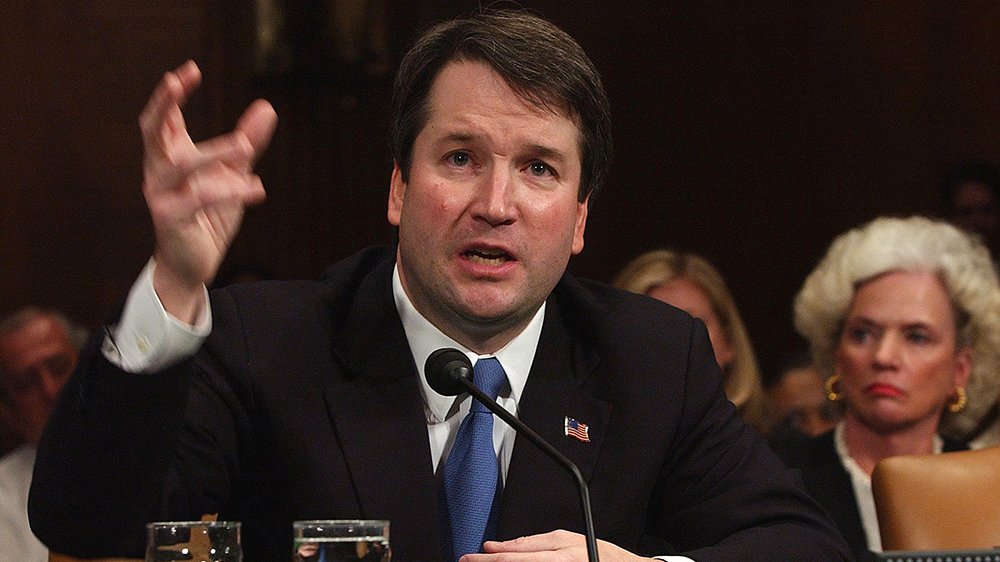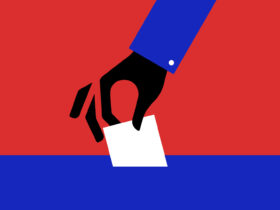
KAVANAUGH Brett Kavanaugh appears before the Senate Judiciary Committee on Capitol Hill, on his nomination to be U. S. circuit judge for the District of Columbia Circuit
JUDICIAL MEMOS, WASHINGTON, USA
Rebecca Cheng: Symbol of Partisanship, Questions of Legitimacy
After Dr. Christine Blasey Ford’s testimony, actor Matt Damon made an appearance on Saturday Night Live, playing Judge Brett Kavanaugh during his Senate confirmation hearing. He opened with, “I’m going to start at an 11, then I’m going to take it to a 15 real quick,” mocking Kavanaugh as an angry and arrogant boy. One week later at a Mississippi rally, President Trump ridiculed Ford’s testimony saying, “How did you get home? I don’t remember. How’d you get there? I don’t remember. Where is the place? I don’t remember,” painting Ford as a foolish false accuser. While neither are accurate depictions of Kavanagh and Ford, its contrast shows the stark partisan divides bruising our country today.
I was not shocked that Kavanaugh was confirmed to become a Supreme Court Justice, as many early reports showed he was likely to be confirmed by a slim margin. I was instead appalled by the overall process in which his confirmation occurred – one that was muddled by partisanship, harsh words, and increasing distrust. As his confirmation process prolonged, it became apparent that something much greater than simply proving Kavanaugh and Ford’s innocence was at stake – the increased partisanship and decreased trust in our democratic institutions.
As Pew research data shows, partisanship in America has been increasing since 1994. 2017 alone showed a 36 percentage point gap between Republicans and Republican-leaning Independents versus Democrats and Democratic leaners, up 21 points from 1994. Meanwhile, the political divide amongst Americans of different races, education levels, and all other demographics remains relatively modest and unchanged. Unsurprisingly, the partisan gap is highly evident in President Trump’s job approval ratings, which is the most polarized of any President in his first year, signalling many Americans’ high level of distrust in the administration.
With Kavanaugh now confirmed, the distrust will also flow into the Supreme Court. Despite idealistic rhetoric, not many Americans fully believed that the Supreme Court was truly above politics. However, the Supreme Court’s legitimacy always rested on general allowance by the American people to make key, lasting decisions. In contrast, the newest justice faces both massive support and opposition and was voted in with the narrowest margin in history for a justice.
Kavanaugh will continue to be viewed as a symbol of partisan politics. However, it mustn’t be a time for frustration. Today, with American politics in such a divided state and faith in democracy at a weak point, it is crucial for Americans to commit to their civic duty and participate by voting, running for office, and donating to campaigns. To fight our splintering institutions is not to back away, but to pick up the pieces ourselves.
Natalia Smith: The Evolution of #MeToo
As Kavanaugh begins his first week on the Supreme Court, the news stories taper out, everyone returns to work, the earth keeps spinning and Dr. Christine Blasey Ford’s life is forever altered after being the face of the recent Supreme Court nomination controversy.
It has been a year since the allegations against Harvey Weinstein came to light in October of last year, which was the catalyst for the #MeToo movement that has shaken the globe. While Kavanaugh’s confirmation may be seen as a setback in the #MeToo movement due to the majority of the senate choosing to overlook Dr. Ford’s accusations, survivors and allies as a result of her testimony have focused their attention on having their voice heard in the upcoming midterm elections.
The power of voice is something that has been echoed repeatedly in the past year with more than 250 powerful people being accused of sexual harassment, assault or misconduct allegation since April 2017. Some of these politicians, celebrities and CEOs have stepped down as a result such as Matt Lauer, Kevin Spacey and Charlie Rose, but many have continued on with their lives, brushing over the allegations as an embarrassing stage of their lives.
Allegations from decades ago are seen as controversial due to the time elapsed, the possibility of not fully remembering the encounter, as well as the argument that people can change as they grow older. Had Kavanaugh come out and said, “I made a mistake. I take responsibility for my actions, but I have changed since then and I apologize for my actions,” I think we would be having a different conversation about the #MeToo movement and whether or not certain people deserve to be forgiven. Many of the accused take the route of flat-out denial and go on the offense, attacking the credibility of the accuser, but this isn’t the most effective way of dealing with the repercussions of sexual assault. Many survivors live in fear and shame for years or even decades after the event due to the consequences of speaking up and telling their story. For example, Dr. Ford received death threats, had to relocate, put her family under the microscope and hired a full security detail due to the abuse she faced for telling her story.
How we address and deal with survivors telling their story has to change. Everyone is entitled to their own opinion on the matter, but survivors should have the ability to speak up without fear of being persecuted online, by the media and by other powerful figures. President Trump’s comments mocking Dr. Ford’s testimony were unacceptable. Whether he believes her or not is irrelevant. Everyone is entitled to tell their story and have their voice heard.
One of the best ways to ensure that America’s leaders support and respect survivors of sexual assault is to use your voice this November in the midterm election by voting for candidates that represent your own values and beliefs.
Amartya Ranganathan: Un-investigation: Why the FBI Failed
Just when Brett Kavanaugh’s confirmation was all but certain, Senator Jeff Flake of Arizona called for a thorough investigation into the allegations of Dr. Christine Blasey Ford. In what seemed like an unusual moment of clarity, there was a chance that justice could be preserved. Especially since this trial was incredibly important in establishing precedence for women’s rights and the justice system for several decades ahead, the prospect of a fair, impartial investigation seemed like the perfect remedy.
Or so we thought.
While the FBI typically receives months of “free reign” in their investigations, this investigation was curtailed to a week. Even if Dr. Ford’s allegations were found untrue, the lack of thoroughness, especially concerning a candidate for a lifetime position, was shocking. In this situation, the FBI was used as a private investigator for the White House for a brief background check as opposed to the arm of justice it is designated to be. Unsurprisingly, the FBI’s investigation failed on multiple accounts.
Several key witnesses, including former classmates of Judge Kavanaugh’s at Yale who submitted signed petitions stating they had pertinent information were not contacted. Deborah Ramirez, who also accused Judge Kavanaugh of sexual misconduct alongside Dr. Ford, received a delayed, brief interview that excluded people who may have been able to corroborate her story. While those who cried foul play are predominantly Democrats who desperately hoped to prevent Kavanaugh’s confirmation, exploring key facts and witnesses is an essential aspect of any FBI investigation, especially witnesses who directly claim to have vital testimonies. Justice and the truth should never be a partisan matter.
Unfortunately, the FBI’s limitations and bipartisan conflict over his nomination indicate a dangerous fact: the two factions on Capitol Hill care more about beating each other than the truth. With the slim margins of Republican control in Congress and a mere two-vote separation over Judge Kavanaugh’s confirmation, it is evident that our government is more partisan than ever. The only aspect that has become more scary than this partisanship is the lack of a judicial check on the Senate’s actions. With the FBI confined to the Senate’s and the President’s demands and a new Supreme Court that could represent the desires of the legislative branch more than the truths of the Constitution, truth and justice could become drastically less preserved.
Shreya Tatkar: The United States Does Not Like Women
The United States sure has a hard time liking its women. From Monica Lewinsky in 1998 to Hillary Clinton in 2016 to Dr. Ford now, women in moments of political struggle have been disrespected, slandered, bullied and systematically disenfranchised. These past few weeks have done nothing but reinforce the gendered divide in American politics along alarmingly partisan lines.
It’s harder to ignore this disrespect towards women when comparing the history of women allowed to participate in high-level American politics to that of other countries with objectively fewer women’s rights. Take, for example, Benazir Bhutto, who rose to power as Pakistan’s first female Prime Minister. She was a democratically elected leader of a Muslim majority country – a country which still allows for blood-money payments as recompense for so-called “honor killings” of women seen to have shamed the family. In another instance, Indira Gandhi was Prime Minister of India twice between 1966 and 1984. Meanwhile, a recent government survey showed that 42 percent of Indian women reported that they had been sexually abused by age 19. Today, Sheik Hasina Wazed is the Prime Minister of Bangladesh, where 33 percent of women reported they had been married before age 15. How can these facts be reconciled? What do these countries see in their women that the American system fails to see in their own? Why can they succeed where the United States fails?
That last question can be answered easily. In a political climate where men are allowed, even encouraged (by the President, no less), to see women’s bodies as their playthings, it was clear that Dr. Ford stood no chance against a male-dominated Congress. There’s been a regression, an counter-movement to the progress of #MeToo, played out in the most hallowed halls in Washington. Women expect too much, this countermovement claims. There’s no corroboration to her story, it claims, despite physical records proving otherwise. It’s a dangerous time to be a man, it claims, uncaring of how dangerous it is all the time to be a woman.
America, trust your women and take this moment as a warning sign. Failing to do so will make us no better than those we condemn and hinder any progress forward.
Briana Trujillo: Kavanaugh and the Complexity of Empathy
The Kavanaugh confirmation has been disheartening to watch (to say the least), and I share the sentiment of my peers when they say it makes them feel hopeless. With a conservative nomination to the Supreme Court, and that nomination being Kavanaugh in particular, the future of American legislation staying out of a woman’s body – and of opening greater conversations about sexual assault with survivors – looks bleak.
I can’t help but circle back to the idea that the 65 women who “testified to Kavanaugh’s good character,” according to Vox, weren’t consciously backing an alleged almost-rapist or trying to demean Dr. Christine Ford. Instead I believe they weren’t asking themselves the right questions. My friend asked me in passing, “Are there any allegations serious enough that would call someone’s character into question and make the public refuse to consider them for office?”
While my immediate answer was, “No,” her question stayed with me. I think of our own current president’s comments and whether or not he could ever say anything so outrageous that people would refuse to throw their support behind him. I think angrily of Brazilian presidential candidate Jair Bolsonaro and how he told a congresswoman after she called him a rapist in 2013 that he wouldn’t rape her because she wouldn’t have deserved it. Why aren’t things like allegations of sexual assault enough to squash support?
I contend that this phenomenon isn’t actually born of malice or hatred for one group against another. Instead I believe we’ve started to determine our empathy across partisan lines, instead of on an individual basis. When my mother asked me to explain the Kavanaugh nomination and expressed disappointment over how he was being treated, I asked her instead to frame her understanding around what his nomination would convey about American attitudes at the highest level of government toward sexual assault. She wasn’t able to relate to Dr. Ford because she was already assuming that Kavanaugh was being treated unfairly by democrats. Her entire perspective was tainted by partisanship.
I don’t know if thinking on non-partisan lines is something realistic to expect others to do. We don’t often bother to change our own “lens” or even recall that we have one. I do believe, however, that if we don’t ask each other why the people we disagree with or distrust the most – be it accusers or Kavanaugh himself – are hurting, we’re cramming our empathy and ultimately our decision-making into a partisan box without considering a larger complexity.
The views expressed by the author do not necessarily reflect those of the Glimpse from the Globe staff, editors or governors.










